Is There an Age Limit for Hair Transplantation?
Hair transplantation has become a popular solution for individuals experiencing hair loss or thinning. With its ability to restore a natural-looking hairline, a hair transplant can boost self-confidence and overall appearance. However, many people wonder if there is an age limit for undergoing this procedure.
In this article, we will discuss the factors that determine whether you are a suitable candidate for a hair transplant based on your age, and explain the conditions under which the procedure can be effective.
Age and Hair Transplantation: What You Need to Know
While there is no strict “age limit” for hair transplantation, the suitability of the procedure depends on several factors related to your age, overall health, and the extent of your hair loss. Below, we will explore the key considerations regarding age and hair transplantation.
- Young Patients (Under 25)
For individuals under 25, hair transplantation can be a viable option, but there are certain precautions to consider:
- Hair Loss Pattern: In younger patients, the progression of hair loss is often unpredictable. If someone is experiencing hair loss at a young age, it’s important for the surgeon to assess whether the hair loss pattern is stable or if it’s likely to progress in the coming years. Performing a transplant too early, when hair loss is still ongoing, may lead to an unnatural result over time.
- Hairline Design: Younger patients tend to have a more aggressive hairline design, which can lead to complications later if the hair loss continues. Surgeons often recommend waiting until the patient’s hair loss pattern becomes more stable to ensure a more natural result in the long term.
- Pre-Transplant Evaluation: Before proceeding with a transplant, a thorough consultation and hair analysis are essential. Surgeons may suggest non-surgical options, like PRP therapy or medication, to stabilize hair loss before committing to a transplant.
- Middle-Aged Patients (25–50)
For patients aged between 25 and 50, hair transplantation is typically highly effective. During this period:
- Stable Hair Loss: By this age, hair loss tends to stabilize, meaning the patient’s hair loss pattern is less likely to change drastically in the future. This makes it a suitable time for a transplant, as the results will last longer and appear more natural.
- Personalized Treatment Plans: Surgeons can design a natural-looking hairline based on the patient’s facial structure and existing hair loss. In many cases, hair transplants are used to restore hairlines or thicken thinning areas without needing to make major adjustments in the future.
- Advanced Techniques: Patients in this age group are usually suitable candidates for advanced hair transplant techniques such as FUE (Follicular Unit Extraction) or DHI (Direct Hair Implantation), which offer minimal scarring, faster recovery times, and more precise results.
- Older Patients (50 and Above)
For patients over 50 years old, hair transplantation is still a viable option, but there are additional considerations:
- General Health: Older patients must be in good overall health to undergo surgery. Health conditions such as heart disease, diabetes, or high blood pressure can affect the success of the procedure and the recovery process. Before proceeding, a thorough medical examination is crucial to ensure the patient is fit for surgery.
- Donor Area Quality: The success of a hair transplant depends heavily on the quality and density of the donor area (the back and sides of the scalp). As individuals age, hair in the donor area may become thinner or weaker, which can limit the number of follicles available for transplantation. However, many older patients still have adequate donor hair, making the transplant effective.
- Realistic Expectations: Older patients may have a more mature hairline due to age-related hair thinning. It’s essential to set realistic expectations, as the transplant will likely focus on restoring density and improving hairline aesthetics rather than reversing the effects of aging completely.
- Hair Loss Stability: Like middle-aged patients, older individuals typically have a more stable hair loss pattern, meaning the transplanted hair is unlikely to be affected by further thinning or receding.
⚕️ The Role of Health and Medical Conditions
While age is a significant factor, your overall health and medical conditions play an even more crucial role in determining whether you’re a suitable candidate for hair transplantation. Regardless of your age, it’s important to be in good physical condition to undergo surgery.
Some of the conditions that may affect eligibility include:
- Chronic diseases (e.g., heart disease, diabetes, autoimmune disorders)
- Blood circulation problems or clotting disorders
- Scalp conditions such as psoriasis or fungal infections
In these cases, it’s important to address any health issues before proceeding with the transplant. Your surgeon will work with your healthcare provider to determine whether the procedure is safe for you.
Is Age the Only Factor?
While age plays a significant role, it is not the only factor that determines whether you are a good candidate for hair transplantation. Other considerations include:
- Extent of hair loss: The more advanced your hair loss, the more challenging it may be to restore a natural result. In some cases, patients with severe hair loss may require more grafts, which can affect the outcome.
- Hair type and quality: The texture, density, and overall quality of your hair will influence the final result. Individuals with thicker hair tend to have more successful outcomes as transplanted hair blends more easily with existing hair.
- Hairline design preferences: Your expectations and goals for the new hairline will be considered in the planning process. A skilled surgeon will ensure that your hair transplant is customized to your facial features, age, and desired aesthetic.
⏳ What Happens if You Are Too Young or Too Old for Hair Transplantation?
If you are considered too young or not yet an ideal candidate for a hair transplant, alternative treatments may be suggested, including:
- Hair growth medications such as minoxidil or finasteride, which can help slow hair loss and promote regrowth.
- Platelet-Rich Plasma (PRP) therapy, which uses your own blood to stimulate hair follicles and improve hair thickness.
- Laser therapy or scalp micropigmentation for improving hair density and appearance.
If you are older, and a transplant is not viable due to medical or donor hair limitations, the surgeon may recommend non-surgical options to manage hair thinning and enhance the appearance of your existing hair.
In Conclusion
There is no strict age limit for hair transplantation, but age does play an important role in determining the suitability and effectiveness of the procedure. Younger patients (under 25) may need to wait until their hair loss pattern stabilizes, while middle-aged patients (25–50) typically make ideal candidates. Older patients (50 and above) can still undergo successful hair transplants, provided they are in good health and have sufficient donor hair.
Regardless of age, a thorough consultation with a skilled surgeon is essential to evaluate your specific situation, health, and hair loss pattern. At Revital Hair Clinic, we specialize in providing customized hair restoration solutions tailored to each individual’s needs, ensuring natural-looking results at any age.
For more information or to schedule a consultation, feel free to contact us. We’re here to help you achieve the hair you’ve always wanted, no matter your age!
Revital Hair Clinic © 2024
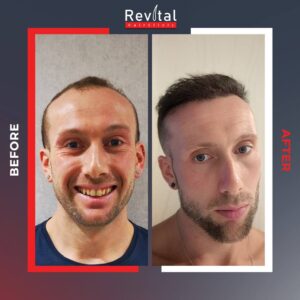
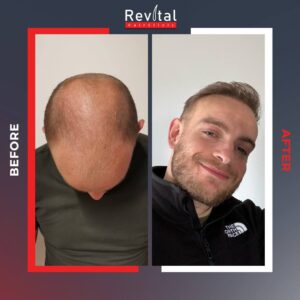
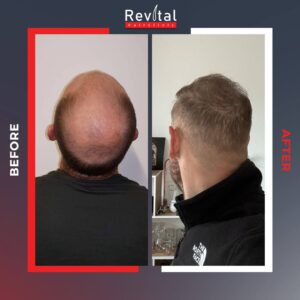
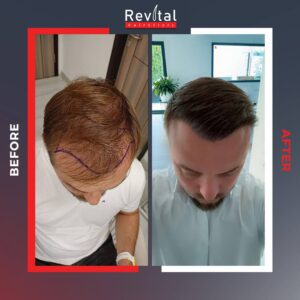
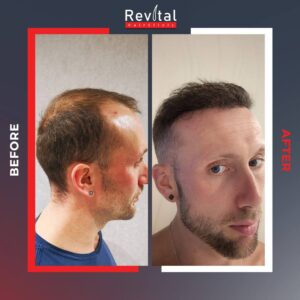

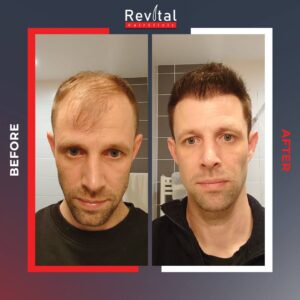



Leave a Reply